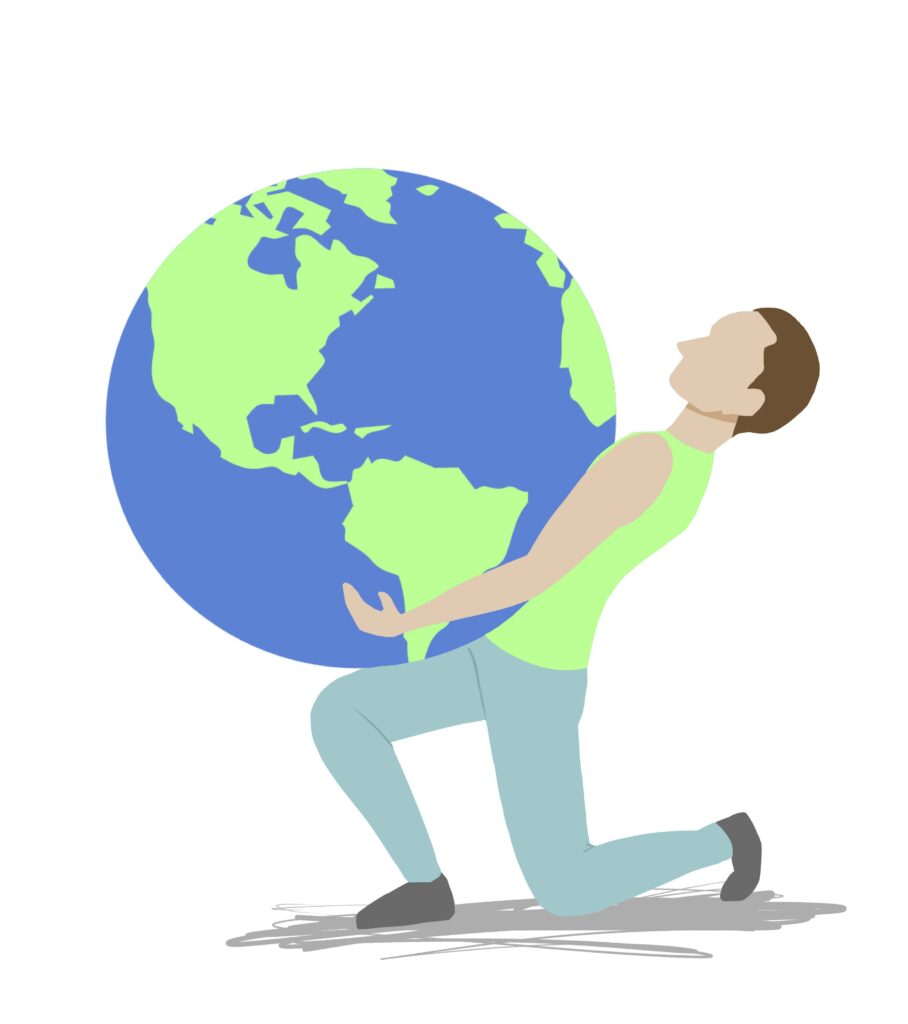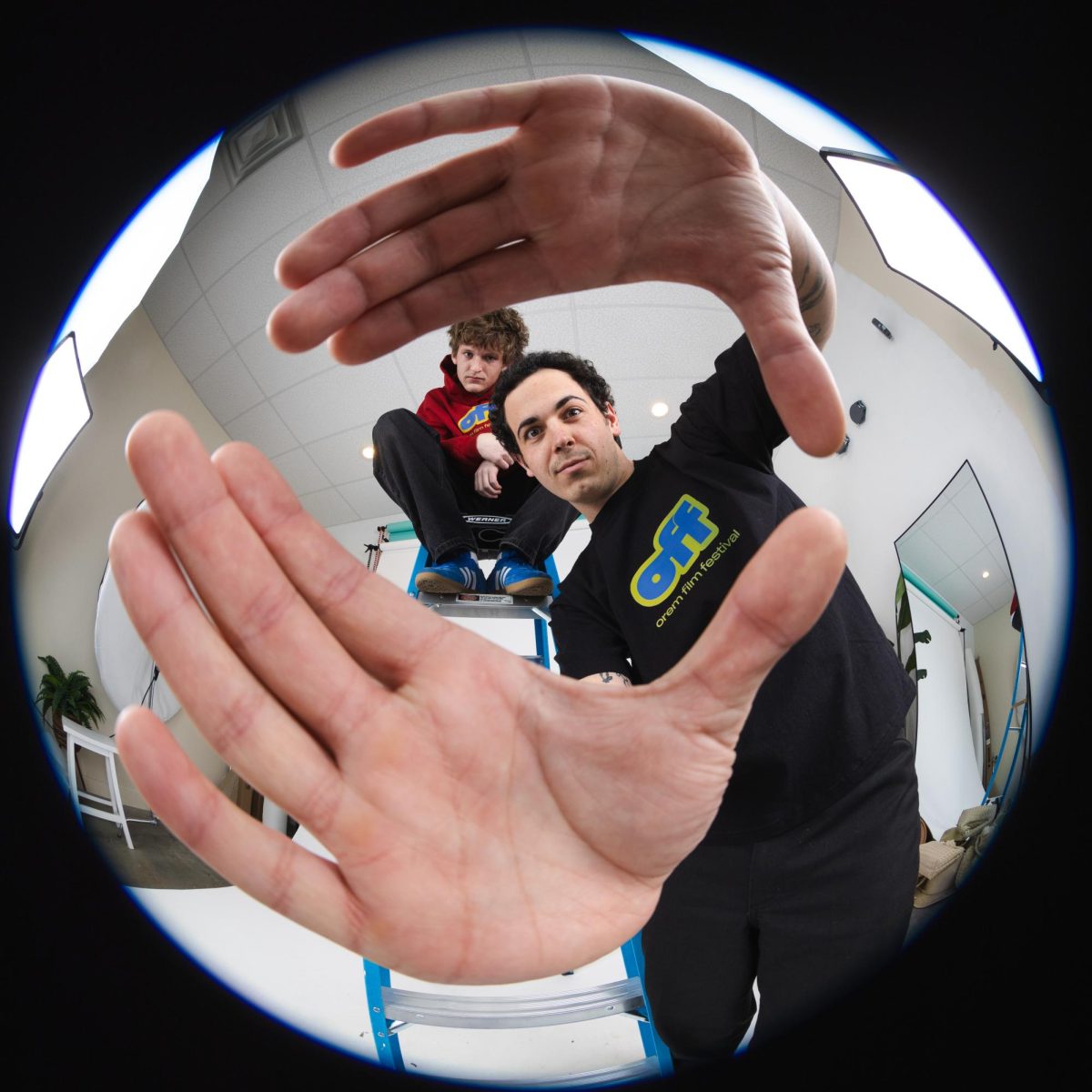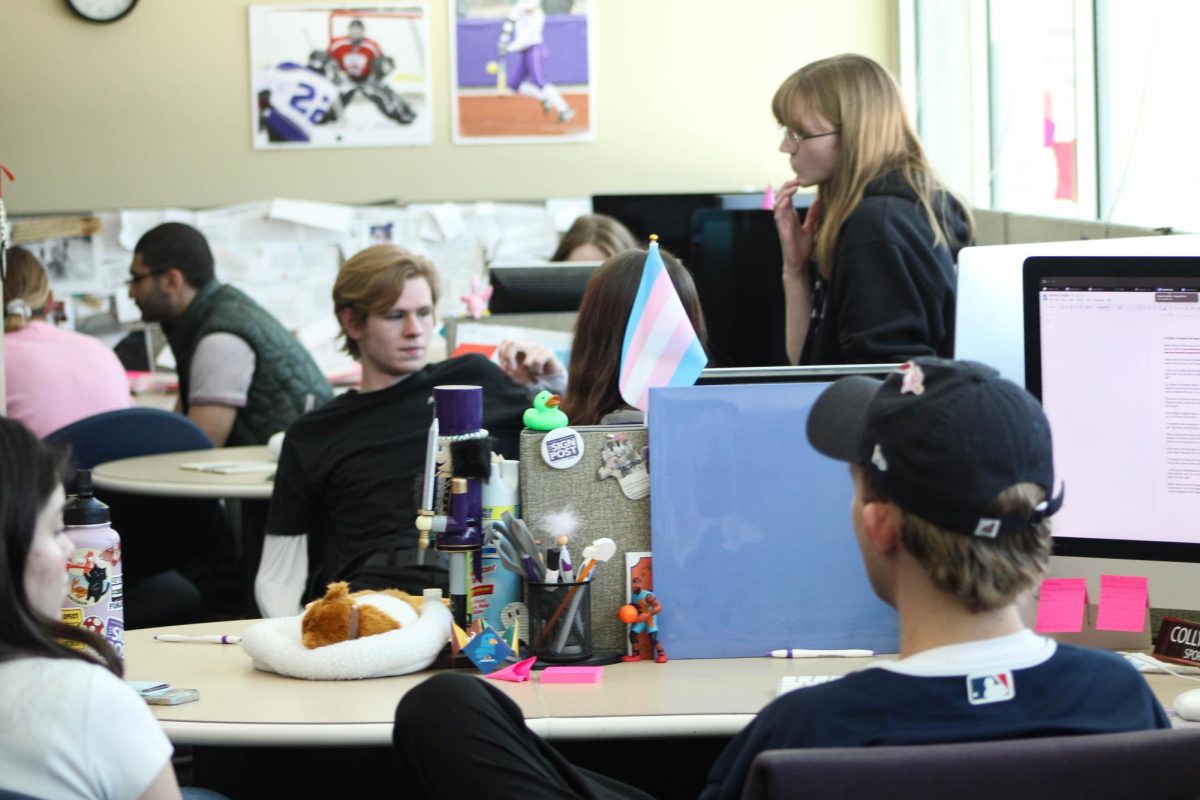The world, pretty much inarguably, is warmer than it was. Climate deniers like to fall back to the claim that local temperatures fluctuate year-to-year, so the Intergovernmental Panel on Climate Change-reported global rise in temperature of one-and-a-half degrees is insignificant.
Meanwhile, Chicago’s coming out of another polar vortex; in late January, the city was sitting at temperatures around 20 degrees or lower with a minus 15 wind chill, according to the Chicago Tribune. The planet can’t possibly get warmer.
It sounds like a smart argument, so people listen.
The problem is that 1 degree, globally, is significant. NASA reports the global temperature only had to drop by 1 to 2 degrees before the world experienced the Little Ice Age.
Go back 20,000 years ago, and scientists estimate the world was about 5 degrees colder than it is now. During that time, pretty much all of North America was chilling under a glacier.
So yeah, the world’s getting warmer. Should we care?
As of last October, Veronica Cordóva Soria says we should. Most people will remember her as the United Nations ambassador from Bolivia who famously said, “We are reaching a critical point of no return,” regarding climate change, referencing the IPCC report that said we have about 12 years left to adapt our behavior.
If we do nothing, bad things happen. Like, more bad things than what has been happening.
We still get snow, though, so we’re fine. Right? Wrong.
The 2014 National Climate Assessment told us that extreme weather patterns and climate change are not-so-strange bedfellows. Maybe that’s why citizens of New York and New Jersey got sucker-punched by a hurricane they should have been relatively sheltered from last year.
The 2014 NCA report predicted that the American West (point: us) will suffer a few major issues if the world keeps warming up.
One, our snowmelts all melt, depriving us of water, which causes a myriad of economic and ecological problems. Two, the oceans get acidic, so marine life dies, again, an economic and ecological problem. Three, forests catch on fire, causing, you guessed it, economic and ecological problems.
The UN maintains that the ways to counter climate change, or — realistically — play damage control, include finding renewable energy sources and lowering greenhouse gas emissions.
The world’s been getting noticeably warmer since around the Industrial Revolution, according to NASA, so we’ve pretty much got the cause dead to rights. The solution then makes logical sense.
The problem when fighting climate change one person at a time, though, comes down to scale. No one person wields the kind of individual power necessary to change the world in this context.
Say I want to become more energy-efficient, so I change all the light bulbs in my house to spiral CFL ones. Actually, recent evidence claims LED lights are even more efficient, but you get the idea.
I’ve got my house outfitted in energy-efficient bulbs. I use anywhere from 25 to 75 percent less energy than incandescent lights. My energy costs go down and the world becomes a little better.
However, while well-intentioned, I’m certainly not doing enough to effect a change when everyone else on my block uses incandescent lights. The weight of their energy consumption dramatically outweighs my energy conscientiousness.
So then, we have to wonder at what point it becomes enough to make a difference. If I don’t use plastic straws, I’m a drop in the literal plastic ocean of 7.5 million other straws lining the American coastline.
If I use reusable grocery bags, I’m reducing my 150 plastic bags used yearly to zero, but there’s still the 499,999,999,850 billion bags other people get rid of.
Now, I’m not going to try and act like this argument isn’t just about one degree of separation away from nihilism: the abyss is certainly staring back. But it’s staring back at all of us.
We’ve created this problem. Fighting it, though, has to extend far beyond the individual, particularly since the creation of the problem did.
We have to make a realization. It’s one that we all know but one we seem to have yet to accept. The fight isn’t fair. In fact, it’s fixed. We’ve got a literal deadline, over a hundred years of backlog work to catch up on, and a combination bystander effect and general futility on the individual level working against us.
We’ve also got a president who pulled us from the Paris Climate Accords and scientists and UN diplomats saying Paris Climate Accords aren’t enough, and the world has to step it up.
Conversely, climate deniers only need wait until we’re crushed under the collective weight of non-biodegradable items or suffocated by gas emissions.
If an individual can’t effect enough change, then can an organization? Weber State University’s Sustainability Office, frankly, kicks ass. They’ve created the Sustainability Practices and Research Center to educate the community on how to save the planet and are working at having WSU carbon-neutral by 2050.
Does WSU’s plan offset the factories around Salt Lake that turn the sky black?
In Greek mythology, Atlas was cursed to hold the world on his shoulders for all of time. On the one hand, since we have to live here, we should bear Atlas’s responsibility. On the other, no one of us can complete a task a Titan struggled to perform.
I’m mostly concerned with what happens when our metaphorical Atlas decides to drop the world. Atlas had already been cursed, condemned for time eternal. What does it matter to him if the world falls?
The solution has to go beyond the individual, but what that looks like right now is beyond me, beyond many of us. Maybe we need a kumbaya moment where we all come together and agree to shoulder this responsibility.
Like, literally, all of us. Honor systems, though, aren’t effective for a reason, and the bystander effect is a real problem. Maybe the answer is abandoning this world and heading to Mars.
Maybe I just like using plastic straws.




















